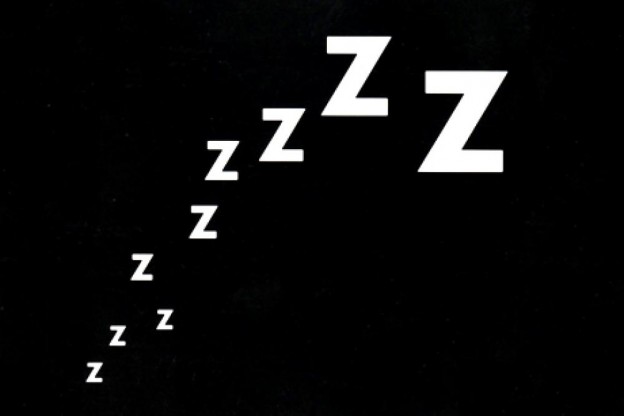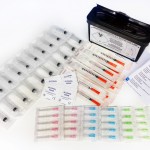By Anthoney J. Andersen – Steroidal.com
Whether you’re an avid strength trainer or a novice stepping into the gym for the first time, one important factor that you must know is that sleep and recovery is just as vital as the intensity of your workouts.
Some people think that the more you train – coupled with the high degree of the workout – will ultimately build more muscle and increase strength at a faster rate.
Not true.
Recovery and proper night’s sleep also play huge roles in your athletic performance.
The following are facts about the importance of sleep, and how to properly utilize your days off from the gym, in order to recover, and help your body build more efficient muscle gains.
GOING TO BED EARLY
In an age where everything and everybody seems to be moving at an accelerated rate, it can be difficult to squeeze in that workout after a long, grueling day at the office (but you do it anyway).
Let’s face it: After the workout is complete, dinner is made and the kids are in bed, you just want to sit down and relax. Maybe just plop down in front of the TV with a loved one and just unwind for a bit. The last thing on your mind is rushing straight to bed.
As an athlete, your days off from the gym are important – it helps your muscles rest and repair the damaged muscle fibers that were shredded during training.
“Getting enough sleep is crucial for athletic performance,” said David Geier, MD, an orthopedic surgeon and sports medicine specialist in Charleston, SC. “Studies show that good sleep can improve speed, accuracy, and reaction times in athletes.”
HOW MUCH SLEEP IS NEEDED?
According to the Better Sleep Council, seven in 10 Americans are not getting enough sleep to physically perform at their best each day.
Most people need around seven to nine hours of sleep a night. If you’re an athlete in training, you may need more.
“Just as athletes need more calories than most people when they’re in training, they need more sleep, too,” said Geier. “You’re pushing your body in practice, so you need more time to recover.”
 It’s recommended that athletes should get an extra hour of sleep a day. This can be achieved by going to bed at night an hour earlier, or by taking an afternoon nap.
It’s recommended that athletes should get an extra hour of sleep a day. This can be achieved by going to bed at night an hour earlier, or by taking an afternoon nap.
“Sleep is the time when your body repairs itself,” said Felicia Stoler, RD, an exercise physiologist and registered dietician in New Jersey. “If we don’t get enough sleep, we don’t perform well.”
One area that is affected in athletic performance is reaction time. According to Hans Von Dongen and David Dinges, Ph.D., of the University of Pennsylvania, performance is markedly affected after staying awake for about three nights.
However, reaction time can also be compromised if small amounts of sleep are lost over time – such as an hour of sleep a night – creating what researchers call a ‘sleep debt.’
RECOVERY DURING TRAINING
One of the most overlooked components in any exercise program is the recovery phase. During the recovery phase, your body is working on repairing the damaged tissue, as it prepares itself for the next strenuous exercise that will soon be placed upon it.
MUSCLE TEARING DURING EXERCISE
According to Livestrong.com, as you exercise, the muscle fibers in your body begin to experience small tears, due to the frequent muscle contractions during your workout. During these contractions, the energy inside your muscles (muscle glycogen) begins to deplete and become fatigued. The glycogen is what fuels the muscle contractions that cause muscle movement, and it is from these contractions that the body experiences the tears in muscle fiber.
THE RECOVERY PROCESS
There are a variety of ways to help your body recover faster after intense bouts of strength training. According to Mensfitness.com, the following are some of the most effective ways to help speed up the recovery of sore muscles:
1. Rest/Active Recovery: As mentioned earlier, getting plenty of sleep and resting your body may be the most effective treatment. However, there is another way to go about speeding up recovery time with what is referred to as ‘active recovery.’
Active recovery is light exercise during the recovery phase, which can help stimulate blood flow to the muscles to help reduce muscle pain. Active recovery can include swimming, or a light jog.
2. Proper hydration: Drinking plenty of water can help flush out toxins from your body and prevent dehydration, which can lead to muscle soreness. According to the American Heart Association, keeping the body hydrated helps the heart more easily pump blood through the blood vessels to the muscles. In turn, the muscles will contract more efficiently.
“If you’re well hydrated, your heart doesn’t have to work as hard,” said John Batson, MD, a sports medicine physician with Lowcountry Spine & Sport in Hilton Head Island, SC. “For every pound of sweat you lose, that’s a pint of water you’ll need to replenish.”
3. Proper nutrition: Consuming a 2:1 ratio of carbs to protein either before, or after a workout – or both – may help reduce the severity of muscle soreness.
CONCLUSION
Whether you’re an athlete training for an event, or just a committed gym/exercise enthusiast, your body requires a proper resting/recovery period, in order for it to continue its path of strengthening and building new muscle.
For a lot of people, getting enough sleep takes discipline and commitment, just like training. WebMD recommends getting on a regular sleep schedule, which requires that you try and go to bed and wake up at the same time each day.
Also, try and refrain from using sleep medications, unless prescribed by your doctor.
“Over-the-counter sleep aids are likely to disturb the quality of your sleep and your performance the next day,” said Jim Thornton, president of the National Athletic Trainers’ Association.
“Relying on natural relaxation techniques before bed – such as deep breathing – is a better approach.”







